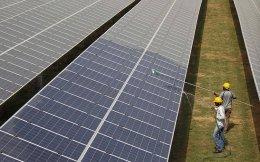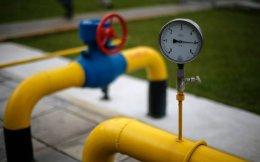Early-stage investors Draper Fisher Jurvetson (DFJ) and VenturEast have committed to back Bharat Light & Power (BLP), an independent power producer founded by Tejpreet S. Chopra, former president and CEO of GE India. The amount committed by the VC firms in this series A round of funding for the clean energy producer stands undisclosed.
The monies raised will be used to further pursue the greenfield project development and strategic acquisitions of clean energy assets. Following the investment, Mohanjit Jolly, General Partner of DFJ, and Sarath Naru, managing partner of VenturEast have joined BLP’s board.
BLP focuses on on-grid and off-grid clean energy projects. The company currently employs 15 people and is building power projects in Maharashtra and Gujarat. The professionals involved have earlier worked with institutions like GE, Rio Tinto, BHEL, Goldman Sachs, Mercados and SBI Capital Markets. Chopra had led GE India for more than a decade.
The BLP team is actively looking at buyouts of operating assets in the clean energy sector and is currently developing significant greenfield capacity for commissioning in the near future. With power generation being a capital-intensive business, the company will have to raise follow-on rounds of funding to ramp up its capabilities.
“India’s massive energy needs and BLP team’s execution capabilities present a phenomenal combination. DFJ is also extremely excited about the potential synergies that exist between BLP and the firm's prolific global clean technology portfolio,” said Mohanjit Jolly, MD, DFJ India.
Incidentally, the US-headquartered venture capital firm DFJ closed its latest fund – Draper Fisher Jurvetson Fund X – at $350 million. Also, cleantech has been a major part of the investment theme for DFJ India. It has earlier backed Attero Recycling, an electronic waste recycling company. The firm committed $6 million in seed-round investment – an unusual ticket size for that round – to the company which raised the money on a power point presentation.
“Clean energy project development in India is at a stage of inflexion. There is an immense requirement to bridge India’s power deficit. However, executing profitable projects and building scale have been the key challenges in the industry. BLP is addressing this challenge. The support from seasoned investors like DFJ and VenturEast reinforces the opportunity and support for the BLP team,” said Tejpreet S. Chopra, CEO of Bharat Light & Power.
“The need for energy is obvious. While many will succeed in this space, the BLP teams’ creative approaches will make them stand out among the plethora of clean energy firms,” said Sarath Naru, MD of VenturEast.
This comes close on the heels of a similar funding for a power sector start-up by a star professional. In September this year, renewable energy start-up ReNew Wind Power Pvt Ltd, founded by prominent deal-maker and former Suzlon Energy COO Sumant Sinha, received Rs 1,000 crore or $200 million from Goldman Sachs in one of the biggest private investment deals in the renewable energy sector in India.
Other prominent PE deals in the power sector include a consortium of PE investors comprising Morgan Stanley Infrastructure Partners, Goldman Sachs, Norwest Venture Partners, General Atlantic and Everstone Capital investing approximately $425 million in Asian Genco Pte Ltd; Bessemer Venture Partners, Citi Ventures and Sequoia putting $100 million in Ind-Barath Power and approximately $75 million investment by IDFC in Green Infra Ltd.
"The demand-supply gap, some well-known cases of projects earning super-normal profits and the significant value-creation undertaken by some developers who have come out with IPOs continue to attract new developers into the Indian power sector, according to industry experts," said Kuljit Singh, partner at the consultancy firm Ernst & Young.
In the backdrop of a growing economy, India’s energy demands are expected to outpace its supply. Key drivers for this imbalance include an expanding middle-class and limited domestic hydrocarbon resources. So far, the government has played a key role in managing the country’s energy infrastructure. However, experts believe there should be increased reliance on foreign investors and private domestic players to fill the supply void through infrastructure expansion and introduction of renewable energy sources.





